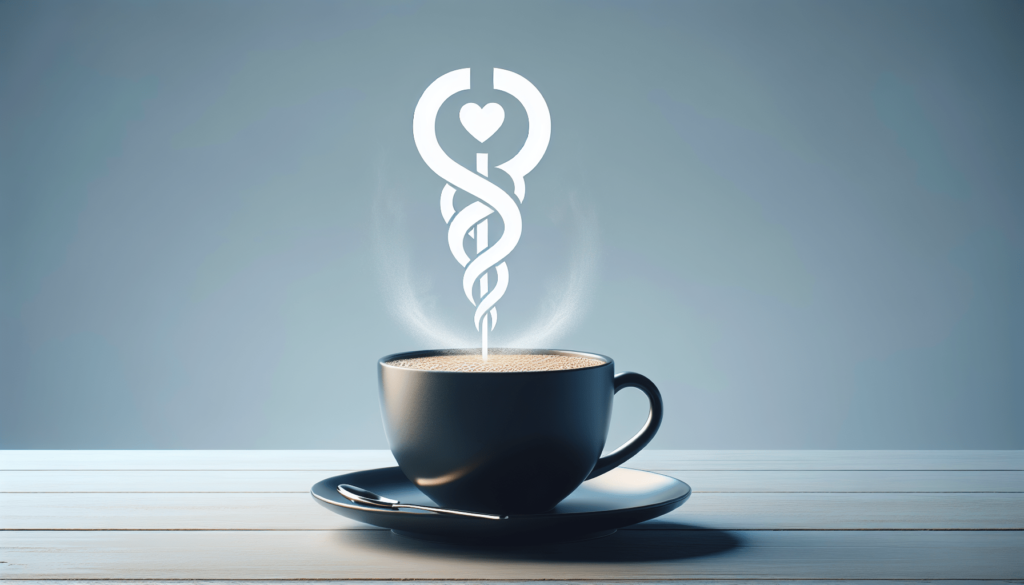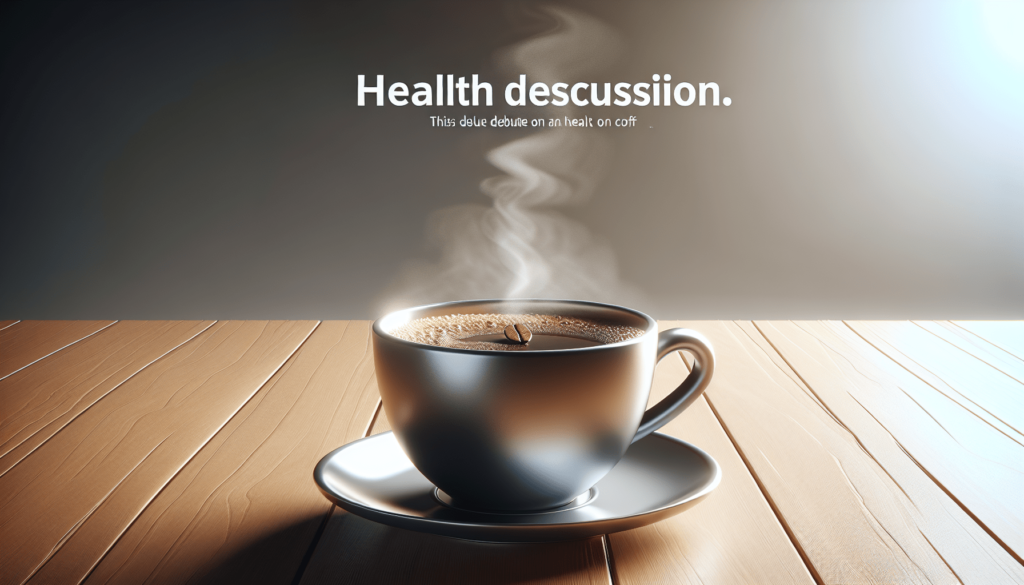Is coffee good or bad for your health? It’s a question that has sparked much debate, and opinions vary widely. Whether you’re a coffee enthusiast or someone who prefers to avoid it, understanding the impact of coffee on your health can be quite insightful. Let’s break down the various aspects of coffee consumption, its benefits, potential risks, and everything in between.

What is Coffee?
Coffee is a popular beverage made from roasted coffee beans, which are the seeds of berries from the Coffea plant. It is enjoyed worldwide for its stimulating effects and rich flavors. Originating from Ethiopia, coffee has become a global commodity and is an integral part of many cultures.
The Nutritional Profile of Coffee
Before diving into the health implications, let’s take a look at what coffee contains.
Basic Nutrients in Coffee
| Nutrient | Amount per 8 oz (240 ml) | % DV* |
|---|---|---|
| Calories | 2 | 0% |
| Protein | 0 | 0% |
| Fat | 0 | 0% |
| Carbohydrates | 0 | 0% |
| Caffeine | 95 mg | Varies |
*% DV = Daily Value based on a 2,000-calorie diet.
While the calorie, protein, fat, and carbohydrate content of black coffee is negligible, its defining component is caffeine. However, many people alter their coffee with milk, sugar, or cream, significantly changing its nutritional profile.
The Benefits of Drinking Coffee
Boosts Energy Levels
The most well-known effect of coffee is its ability to ward off sleepiness. Caffeine, a stimulant, increases the release of neurotransmitters like dopamine and norepinephrine, which combat fatigue and improve alertness.
Enhances Physical Performance
Coffee is often consumed by athletes and fitness enthusiasts for its performance-enhancing qualities. Caffeine ramps up adrenaline levels, paving the way for you to give your best during physical activities.
Contains Essential Nutrients
You might be surprised to learn that coffee contains small yet significant amounts of certain nutrients:
- Riboflavin (Vitamin B2)
- Pantothenic Acid (Vitamin B5)
- Manganese and Potassium
- Magnesium and Niacin (Vitamin B3)
These nutrients play crucial roles in various bodily functions, from energy production to muscle contraction.
Rich in Antioxidants
Coffee is rich in antioxidants, which combat oxidative stress and inflammation—two culprits behind many chronic diseases. Some of these antioxidants include:
- Hydroxycinnamic acids
- Polyphenols
Supports Brain Health
Drinking coffee regularly has been linked to a reduced risk of neurodegenerative diseases like Alzheimer’s and Parkinson’s. This could be due to the coffee’s antioxidant properties and its ability to boost brain functionality.
May Aid in Weight Management
Caffeine is a common ingredient in fat-burning supplements, and for good reason. It can help increase metabolic rate and fat oxidation, making it easier for you to maintain or lose weight.
The Potential Risks of Coffee Consumption
Anxiety and Jitters
High caffeine content can lead to unhealthy levels of anxiety. If you find yourself feeling jittery after a cup, it might be wise to switch to a lower-caffeine alternative or limit your daily intake.
Insomnia
Caffeine is a known sleep disruptor. Consuming coffee late in the day can interfere with your sleep cycle, leading to insomnia.
Digestive Issues
If you have a sensitive stomach, coffee can exacerbate issues like acid reflux or Irritable Bowel Syndrome (IBS).
Dependency and Withdrawal
Frequent consumption of coffee can lead to dependence. If you suddenly stop drinking coffee, you may experience withdrawal symptoms like headaches, fatigue, and irritability.
High Blood Pressure
Though the effect is usually temporary, caffeine can cause a significant spike in blood pressure, which can be problematic for individuals with hypertension.

Who Should Be Cautious?
Pregnant Women
Caffeine can cross the placenta and affect fetal development. Pregnant women are generally advised to limit their coffee intake to reduce the risk of complications such as low birth weight or preterm birth.
Adolescents
The developing brains and bodies of teenagers may be more susceptible to the adverse effects of caffeine, like heightened anxiety and disrupted sleep patterns.
Individuals with Heart Conditions
People with pre-existing heart conditions should consult their doctors regarding caffeine intake, as it can exacerbate symptoms like palpitations or elevated heart rate.
Decaffeinated Coffee: A Viable Alternative?
For those who love the taste of coffee but want to avoid caffeine’s side effects, decaffeinated coffee offers a good alternative. However, it’s essential to understand that “decaf” doesn’t mean zero caffeine—decaf coffee typically contains about 2-5 mg of caffeine per cup.
The Role of Coffee Additives
The way you prepare and drink your coffee significantly impacts its healthfulness. Let’s explore some common additives.
Milk and Cream
Adding milk or cream to your coffee adds calories and fat but also contributes some protein and calcium. If you’re lactose intolerant, consider plant-based milk alternatives like almond or oat milk.
Sugar and Sweeteners
Adding sugar adds to the calorie count and can contribute to issues like weight gain and diabetes. If you prefer a sweet coffee, you might consider natural sweeteners like stevia or erythritol.
Flavorings
Popular flavorings like vanilla, caramel, and chocolate syrups can turn your coffee into a high-calorie dessert. Moderation is the key.
How Much Coffee is Too Much?
Moderation is essential when it comes to coffee consumption. According to health guidelines:
- Up to 400 mg of caffeine per day (about 4 cups of coffee) is generally considered safe for most adults.
- Pregnant women should aim for less than 200 mg per day.
- Adolescents should limit caffeine to 100 mg per day.
Daily Coffee Consumption: Experts’ Recommendations
Dr. John Smith, Nutritionist
“Coffee, when consumed in moderation, can be a part of a balanced diet. However, it’s crucial to pay attention to how your body reacts and adjust accordingly.”
Dr. Jane Doe, Cardiologist
“Patients with cardiovascular issues should be cautious with caffeine. It’s always a good idea to consult your healthcare provider to tailor your intake to your specific needs.”
Dr. Emily Davis, Psychologist
“The psychological effects of caffeine, such as increased anxiety or disrupted sleep, should not be overlooked. Listen to your body and adjust your habits to promote mental well-being.”
Final Thoughts
So, is coffee good or bad for your health? The answer isn’t straightforward—it can be both. Coffee offers a range of health benefits, from boosting your energy levels to providing essential nutrients and antioxidants. However, excessive consumption can lead to a variety of issues, including anxiety, digestive problems, and dependency.
Understanding your own body’s response to coffee and consuming it in moderation can help you enjoy this beloved beverage without the downsides. If you have specific health concerns, it’s always best to consult with a healthcare professional to tailor your caffeine intake to your individual needs.
Do you feel more informed about the great coffee debate? Ultimately, the choice to sip or skip that cup of joe rests in your hands. Enjoy responsibly!
